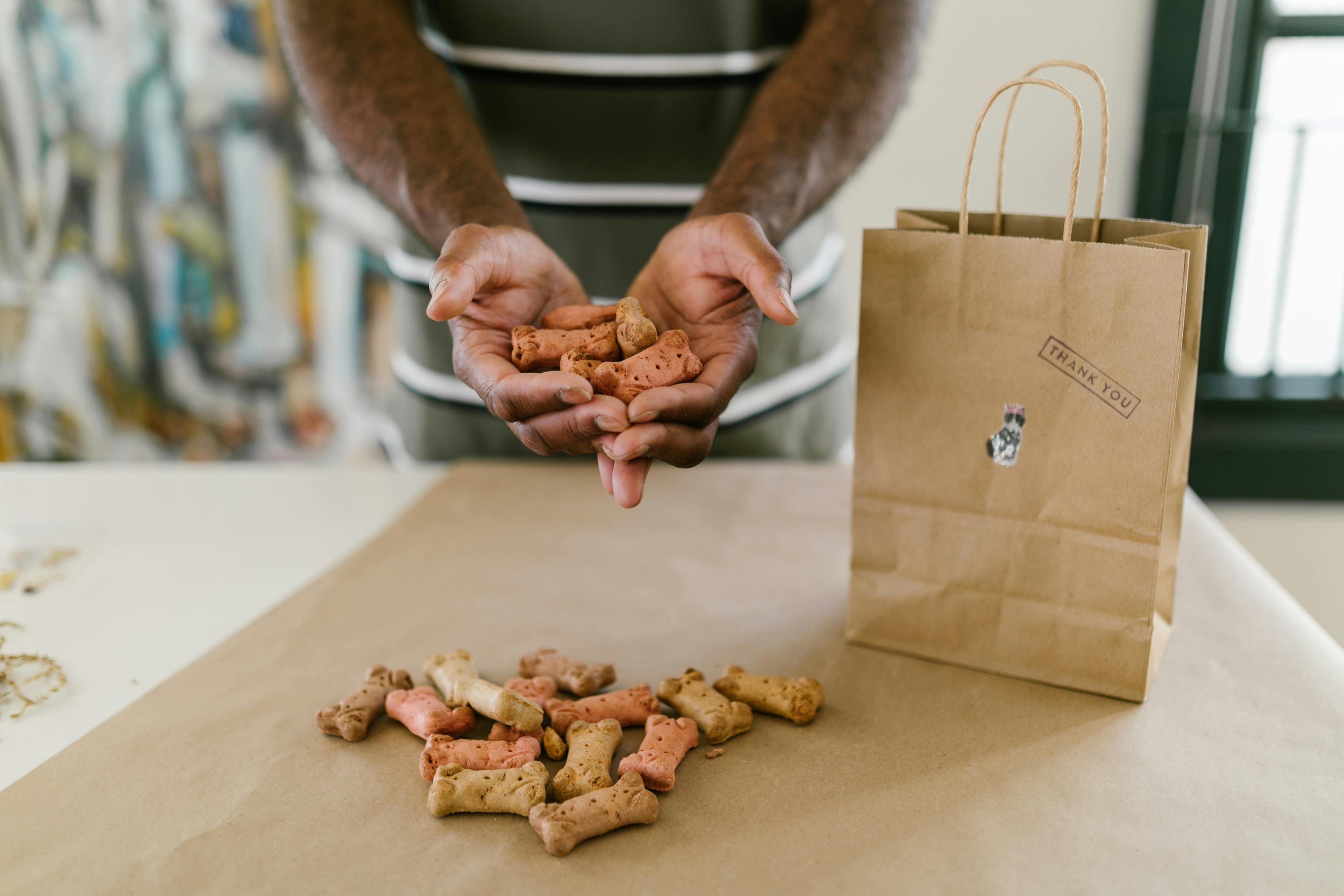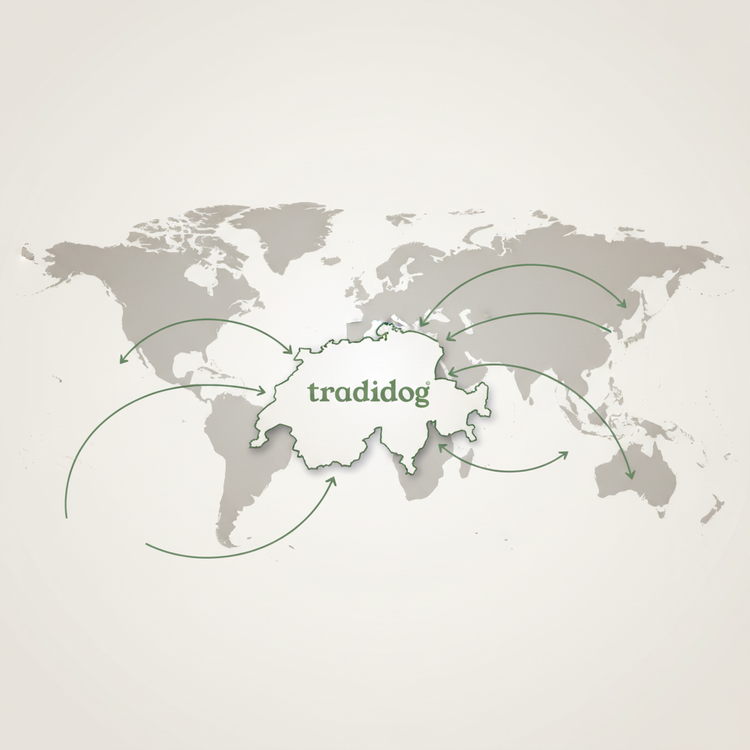
What shouldn't my dog eat? Part 2
When your dog sits next to you at dinner, staring at your plate with his big, loyal eyes, you'd almost think he's a seasoned gourmet looking for the next culinary delight. But before you give him a bite of your delicious steak, let's clarify what's truly off-limits on the menu for your four-legged friend. Because, as you may have heard, not everything that's a feast for us humans is also a treat for dogs!
After briefly touching on this topic in another blog post , this time it's completely different. Heads up! Grab your reading glasses and prepare yourself for a somewhat lengthy blog post. Nutrition is one of the most important topics. Many things related to this topic aren't obvious at first glance. This makes it all the more important to get an overview of this topic.
1. So what foods should my dog not eat?
Chocolate
- Chocolate contains two components, theobromine and caffeine, which are toxic to dogs because dogs metabolize these substances much more slowly than humans. Theobromine can cause a variety of health problems, including vomiting, diarrhea, increased heart rate, tremors, and, in severe cases, seizures or even death. The darker the chocolate, the higher the theobromine content, meaning dark and cooking chocolate are even more dangerous than milk chocolate.
Onions and garlic
- Onions and garlic contain substances known as thiosulfates, which are toxic to dogs and can damage red blood cells. This leads to a condition known as hemolytic anemia, in which red blood cells are broken down, causing the dog to suffer from weakness, shortness of breath, and paleness. Even in small amounts, onions and garlic can be dangerous, and symptoms don't always appear immediately, making timely treatment difficult.
Grapes and raisins
- Grapes and raisins are unknown toxic to dogs, and even small amounts can cause severe kidney problems in some dogs. Symptoms of grape or raisin poisoning can include vomiting, diarrhea, fatigue, and loss of appetite, and the effects on the kidneys can be life-threatening. There is no specific amount considered safe, so it's best to avoid grapes and raisins altogether.
avocado
- Avocados contain persin, a substance that can be toxic to many animals, including dogs. In dogs, eating avocados can cause vomiting and diarrhea because their digestive systems don't handle this fruit well. The skin, pit, and leaves of the avocado, in particular, contain higher concentrations of persin, which is more dangerous to your dog than the flesh.
alcohol
- Alcohol has a significantly more toxic effect on dogs than on humans, as they are much more sensitive to the effects of ethanol. Even small amounts can lead to severe symptoms such as vomiting, diarrhea, shortness of breath, coordination problems, and even a coma-like state. In the worst case, alcohol poisoning can be fatal in dogs, which is why it's important never to give them alcoholic beverages or food.
caffeine
- Caffeine affects dogs similarly to humans, but its effects are much stronger and can quickly become toxic in dogs. Symptoms of caffeine poisoning include nervousness, tremors, increased heart rate, and possibly even seizures. Since caffeine is found in many products such as coffee, tea, and even some soft drinks, care should be taken to prevent dogs from having access to these foods.
Nuts
- While some nuts are healthy for humans, many, especially macadamia nuts, are toxic to dogs and can cause serious health problems. Consumption can lead to symptoms such as vomiting, tremors, elevated body temperature, and weakness. Additionally, due to their high fat content, nuts are difficult to digest and can lead to gastrointestinal problems or pancreatitis.
Raw or uncooked potatoes
- Raw potatoes contain solanine, an alkaloid that is toxic to dogs and can cause gastrointestinal upset. Solanine is present in higher concentrations in the green parts of the potato, including the skin and sprout. Cooked potatoes, however, are safe as long as they are served without seasonings or additives, but raw vegetables should always be avoided.
Bones (cooked)
- Cooked bones are especially dangerous for dogs because they can splinter when chewed, causing injuries to the mouth, throat, or digestive tract. These splinters can become lodged in the esophagus or stomach, causing serious injury or even death. They can also pose a choking hazard, especially for small dogs or with bone pieces too large to chew safely.
2. And what about fruits?
We'll leave out the avocados and grapes/raisins mentioned above for now. However, there are other fruits and vegetables that your dog should avoid.
Citrus fruits (such as lemons, limes and oranges)
- These fruits contain high levels of citric acid, which can cause gastrointestinal upset in dogs. The sour taste is unappealing to most dogs, and they generally avoid them.
Cherries
- Cherries contain cyanide in their pits, which can be toxic to dogs. Eating cherries can lead to respiratory problems, shock, and, in the worst case, death.
Plums
- Plums, and especially their pits, also contain cyanide, which is toxic. Consumption can lead to gastrointestinal problems and, in severe cases, serious health complications.
rhubarb
- Rhubarb leaves are highly toxic to dogs and can cause kidney failure. The stem is also not recommended, as it can cause gastrointestinal upset.
Dates
- Dates are very high in sugar and can cause stomach problems. Their high sugar content can also lead to obesity and other health problems if consumed in large quantities.
3. And what about the vegetables?
Of course, there are also vegetables your dog shouldn't eat. Here's a list of these foods:
Tomatoes (especially unripe ones)
- Unripe tomatoes and the green parts of the tomato plant contain solanine, which is toxic to dogs. Ripe tomatoes are safe in small amounts, but caution is advised.
Peppers (especially green ones)
- While red and yellow peppers are safe in small amounts, green peppers can be difficult for some dogs to digest and cause stomach problems.
Cabbage and other cruciferous vegetables
- Vegetables such as broccoli, Brussels sprouts and cauliflower can cause bloating and stomach upset in dogs, especially when fed in large quantities.
Pickled vegetables
- Pickled vegetables like cucumbers or olives often contain a lot of salt, which can be harmful to dogs. Too much salt can lead to dehydration and other health problems.
Conclusion:
Overall, it's crucial to be aware of which foods can be harmful or even toxic to dogs. We hope this list has given you some insight. There are numerous types of both fruits and vegetables that can cause serious health problems, such as anemia, gastrointestinal upset, or even life-threatening conditions. Your dog's health should always be your top priority; therefore, it's important to educate yourself about safe foods and pay attention to your four-legged friend's diet. If you're unsure, it's advisable to consult a veterinarian to ensure the best possible nutrition for your dog and ensure a long, healthy life. Ultimately, prevention is better than cure, and knowing about safe and unsafe foods is key to a healthy canine friendship.
Tradidog motto: For a dog without need – the right food offer !
Share

